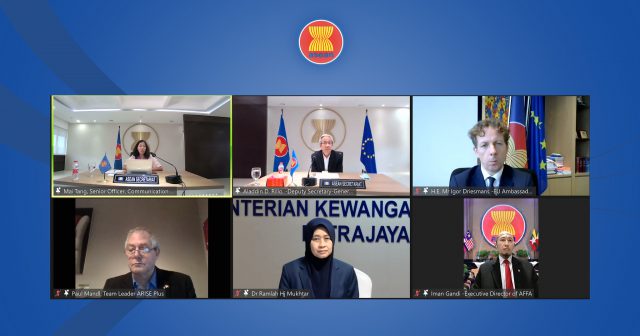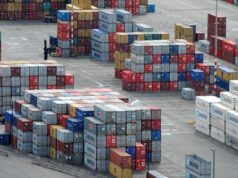- Launched on Nov 30, the ASEAN Customs Transit System (ACTS) is an online system that allows businesses to lodge e-transit declarations directly with ASEAN Customs authorities
- Under ACTS, the private sector can make a single Customs transit declaration that covers transport of goods across multiple ASEAN countries
- System was created to realize the ASEAN economic ministers’ twin goals set in 2017 to reduce trade transaction costs by 10% by 2020 and double intra-ASEAN trade between 2017 and 2025
- Special arrangements allow reliable traders to load their goods at their own premises in the country of departure and to deliver goods to their own premises at destination
- System has been pilot-tested in Cambodia, Laos, Malaysia, Singapore, Thailand, and Vietnam, and will soon be available in Myanmar, and may later be expanded to Brunei, Indonesia and the Philippines
The Association of Southeast Asian Nations (ASEAN) launched on November 30 an online system that aims to reduce intra-ASEAN trading challenges, enable companies to benefit fully from the ASEAN Economic Community (AEC), and promote free movement of goods across the region.
The ASEAN Customs Transit System (ACTS) allows businesses to lodge electronic-transit (e-transit) declarations directly with ASEAN Customs authorities and track movement of goods from loading at departure to delivery at the final destination.
The system was created to realize the ASEAN economic ministers’ twin goals set in 2017 to reduce trade transaction costs by 10% by 2020 and double intra-ASEAN trade between 2017 and 2025.
ASEAN secretary-general Dato Lim Jock Hoi in a statement said the implementation of ACTS will facilitate seamless movement of goods in the region, enhance ASEAN’s trade and production networks, and establish a more unified market for firms and consumers.
“The ACTS could also support post COVID recovery to accelerate the transit movement of medical supplies, vaccines and Personal Protective Equipment within the Member States,” he added.
ACTS is seen to simplify the movement of goods across the region, making their transport more efficient and cost-effective.
Under ACTS, the private sector can make a single Customs transit declaration that covers the transport of goods across multiple ASEAN countries, without needing to make repeated Customs declarations or change vehicles at each border.
Special arrangements allow reliable traders to load their goods at their own premises in the country of departure, and deliver the goods to their own premises at destination.
Faster Customs clearance at borders helps accelerate transit movements, and reduces the time and expense of carrying out regional trade in goods, to the benefit of producers and consumers across the continental ASEAN region.
The system is managed by a permanent ACTS Central Management Team based in the ASEAN Secretariat in Jakarta, Indonesia, with technical and financial support from the European Union (EU)-funded ASEAN Regional Integration Support by the EU (ARISE) Plus program.
Regional and national ACTS helpdesks are available (see https://acts.asean.org).
ACTS will make the movement of goods by road quicker and easier across the borders of the participating ASEAN member states, thereby reducing costs for businesses and citizens, said Koen Doens, director general for International Cooperation and Development at the European Commission.
Following ACTS pilot activities in Cambodia, Laos, Malaysia, Singapore, Thailand, and Vietnam, the system has now been formally launched for general use.
The first successful ACTS transit movement occurred on October 23 and 24 with a truck travelling from Singapore via Malaysia to Thailand.
The system will soon be available in Myanmar, and may later be expanded to Brunei, Indonesia and the Philippines.
ASEAN Federation of Forwarders Associations (AFFA) chairman Yukki Nugrahawan said the freight forwarding community will be one of the main beneficiaries of this system with its simplified Customs and transport control procedures between different ASEAN member states.
ACTS will also provide predictability on door-to-door delivery times and reduced transport costs, as well as significantly accelerate transit movements across the region to reduce time and expenses of carrying out cross border trade in ASEAN, he added. – Roumina Pablo









